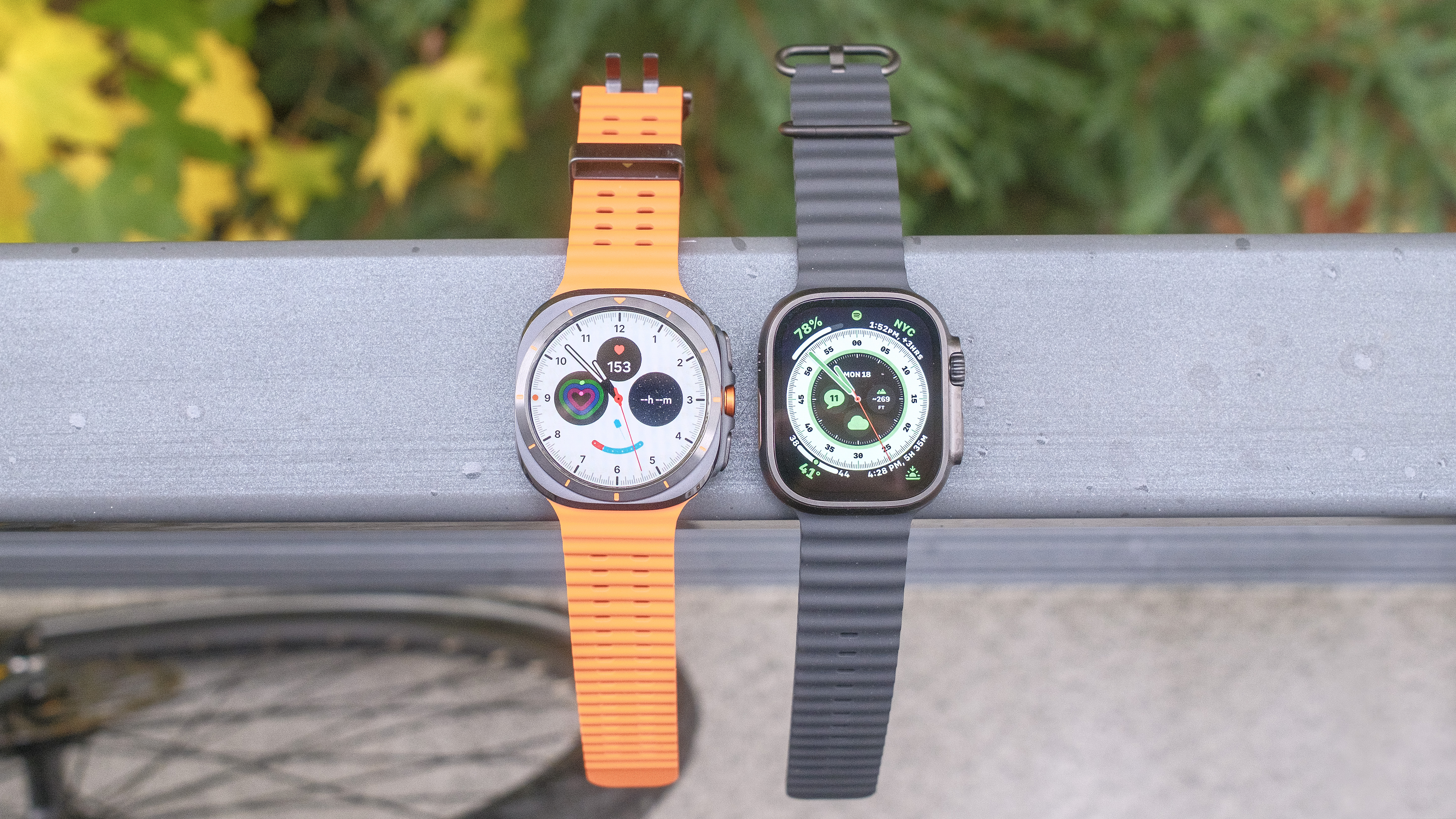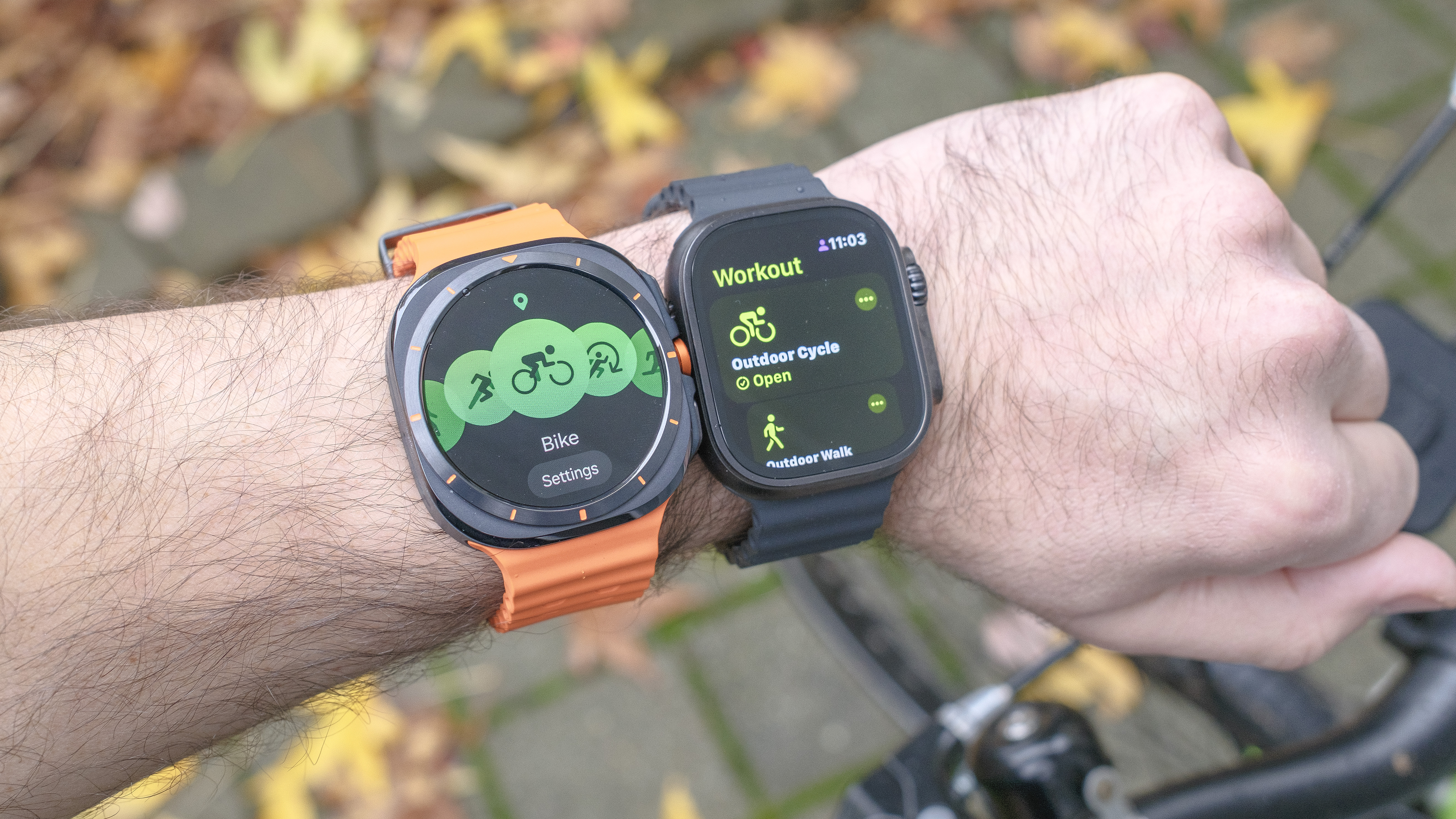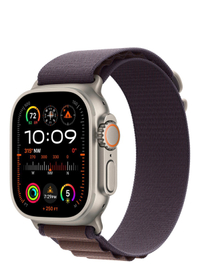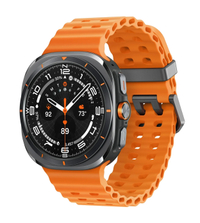I biked 13 miles with the Apple Watch Ultra 2 vs. Samsung Galaxy Watch Ultra — here’s the winner
Ultra 2 versus Ultra: Which premium smartwatch comes out on top?

The Apple Watch Ultra 2 and Samsung Galaxy Watch Ultra are two of the best smartwatch models you can buy today; they are also two of the priciest. With features and rugged designs meant to appeal to outdoor adventure enthusiasts — and cool dudes who like big chunky wrist candy — both devices promise advanced fitness tracking capabilities for all sorts of physical activities.
I decided to test the accuracy of each while enjoying a soggy and crisp November bike ride around Seattle, Washington. With both fully charged up, I slapped the Galaxy Watch Ultra to my left wrist and the Apple Watch Ultra 2 to my right before departing on my ~13-mile adventure.
A little over an hour and ten minutes later, I returned, covered in mud and with a laundry list of metrics from each device based on my efforts.
Read on to find out how the Apple Watch Ultra 2 vs. Samsung Galaxy Watch Ultra compares accuracy-wise when it comes to tracking my distance, speed, pace, heart rate and more. But first, some impressions from the ride...
Apple Watch Ultra 2: was $799 now $699 @ Amazon
The Apple Watch Ultra is the brand's toughest-built and longest-lasting smartwatch. It also boasts lots of screen real estate, an all-titanium case, a customizable 'Action' button and a future-proof processor. Find out more in our full Apple Watch Ultra 2 review.
Samsung Galaxy Watch Ultra: was $599 now $479 @ Walmart
The Galaxy Watch Ultra is Samsung's take on an Apple Watch Ultra, complete with a titanium case, beefy design, bonus customizable button and long-lasting battery. It's also one of the best smartwatches for health monitoring. Read more in our Samsung Galaxy Watch Ultra review.
Apple Watch Ultra 2 vs Galaxy Watch Ultra: Bike test
The bike test started smoothly, but roughly a third of the way into my ride, I noticed that the running time on the Samsung Watch appeared to have frozen. Having accidentally bumped a button on the Galaxy Watch Ultra once before during a bike test, inadvertently ending workout tracking early, I immediately pulled my bike off to the side of the trail to check in on things.
Fortunately, when I held my wrist up to inspect the metrics, the display updated with my current time, distance and other stats. Presumably, this behavior is intentional and designed to save battery power, but I'm hoping there's a way to turn it off because I find it utterly annoying.
Comfort-wise, while the Apple Watch Ultra 2 and Samsung Galaxy Watch Ultra each weigh roughly 61 grams — the former felt more comfortable and less chunky on my wrist. I mainly attribute this to the Galaxy Watch sitting noticeably higher than the Apple Watch Ultra 2. However, that's just my bony wrist; your mileage may vary.
Sign up to get the BEST of Tom's Guide direct to your inbox.
Get instant access to breaking news, the hottest reviews, great deals and helpful tips.
Apple Watch Ultra 2 vs Galaxy Watch Ultra: Results
| Header Cell - Column 0 | Apple Watch Ultra 2 | Samsung Galaxy Watch Ultra | Control (Strava) |
|---|---|---|---|
| Distance | 13.10 miles | 13.14 miles | 13.2 miles |
| Elevation gain | 714 feet | 711 feet | 719 feet |
| Average pace | 5:55 per mile | 5:31 per mile | 5:27 per mile |
| Average speed | 10.1 mph | 10.8 mph | 11 mph |
| Max speed | 18.8 mph | 23 mph | 23.4 mph |
| Average heart rate | 163 bpm | 153 bpm | n/a |
| Max heart rate | 179 bpm | 194 bpm | n/a |
| Calories burned | 746 calories | 710 calories | n/a |
| Battery used | 11% | 14% | n/a |
As a control, I also tracked my Apple Watch Ultra 2 vs. Samsung Galaxy Watch Ultra bike ride test using the Strava app on my phone. With that in mind, the Samsung Galaxy Watch Ultra slightly beats the Apple Watch Ultra in distance accuracy, while the Apple Watch beats the Samsung Watch when it comes to elevation data. Still, both devices nailed these metrics within 99% accuracy of the control.
Moving on to the pace, only the Samsung Watch offers an actual metric post-ride, while Strava and Apple require you to calculate it (time divided by distance). While Samsung and Strava measured roughly the same pace, Apple calculated a noticeably slower pace; the Apple Watch also measured my workout time as roughly five minutes longer than Samsung or Strava.
It's worth noting that both Strava and Samsung Galaxy Watches are programmed to auto-pause a workout during brief stoppages in movement, something the Apple Watch appears less keen on doing.
The Apple Watch also recorded an oddly lower speed than the Samsung Watch or Strava. Both measured my fastest speed at around 24 mph, which mentally checks out in my mind based on previous speed recordings along this route.
On the flip side, the Samsung Watch's heart data seems a bit off to me. I've completed different variations of this bike route dozens of times, always while tracking it with some combination of devices. As a result, I have a good idea of where my average heart rate (~165 bpm) and max heart rate (~ 185 bpm) tend to be.
While the Apple Watch Ultra's heart data falls largely in line with these expectations and previous bike test challenges, the Galaxy Watch Ultra's average heart rate strikes me as a tad low, while the max heart rate of 194 bpm seems high.
Of course, without a third heart rate measuring device, it's hard to say for sure if the Galaxy Watch's data is an anomaly or truly reflective of my efforts.
Moving on to our final metrics, both devices measured over 700 calories burned during my ride. While, power consumption-wise, the Samsung Watch used a little more juice than the Apple Watch.
Bike test winner: Verdict

With distance and elevation accuracy being the two primary metrics I judge which device wins or loses a bike challenge on, I have no choice but to call this one a draw because both the Apple Watch Ultra 2 and Samsung Galaxy Watch Ultra proved incredibly accurate at measuring each.
Ultimately, either of these watches will serve you well if you're looking for a buffet of precise and actionable data post-workout, whether your favorite activity is biking, running, walking, hiking or something more niche. That said, sorry, Samsung folks, only the Apple Watch offers a pickleball tracking mode.
More from Tom's Guide:

Dan Bracaglia is the Tom’s Guide editorial lead for all things smartwatches, fitness trackers and outdoor gear. With 15 years of experience as a consumer technology journalist testing everything from Oura Rings to instant cameras, Dan is deeply passionate about helping readers save money and make informed purchasing decisions. In the past year alone, Dan has assessed major product releases from the likes of Apple, Garmin, Google, Samsung, Polar and many others.
An avid outdoor adventurer, Dan is based in the U.S. Pacific Northwest where he takes advantage of the beautiful surroundings every chance he gets. A lover of kayaking, hiking, swimming, biking, snowboarding and exploring, he also makes every effort to combine his day job with his passions. When not assessing the sleep tracking and heart rate accuracy of the latest tach gadgets, you can find him photographing Seattle’s vibrant underground music community.


